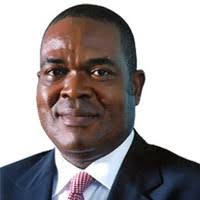By Marcel Okeke
The Federal Government of Nigeria (FGN) has, through the National Bureau of Statistics (NBS), rebased the economy after over a decade when the last rebasing exercise was carried out (in 2014). But rather than coming up with an exhilarating result, the latest rebasing showed the country’s Gross Domestic Product (GDP) as having dropped to less than half of its value ten years ago.
GDP rebasing is the process of updating the base year used to calculate a country’s GDP. The base year is the reference year used to calculate prices of goods and services in the country. Thus, for the latest GDP rebasing in Nigeria, the NBS moved its base (reference) year from 2010 to 2019. But shockingly, while the 2014 rebased GDP placed Nigeria as Africa’s largest economy with a value of US$510 billion, the 2025 rebasing exercise gave the country’s GDP in 2024 as US$243 billion only.
The 2014 rebasing saw the total GDP increasing from US$270 billion value of 2013 to US$510 billion, a very impressive 89 per cent increase. But the latest rebasing saw the GDP value drop from US$363.8 billion in 2023 to US$243 billion (2024)—a decline of about eight percent.
According to the NBS, “In nominal (Naira) terms, the rebased GDP for 2019 stood at N205.09 trillion, N213.63 trillion in 2020, N243.30 trillion in 2021, N274.23 trillion in 2022, N314.02 trillion in 2023, and N372.82 trillion in 2024.” In dollar terms, these figures show the rapidly deteriorating GDP values since the 2014 peak. Depressing as the latest GDP rebasing outcome is, however, it has exposed some stark realities of Nigeria’s wobbling economy. Nigeria’s rebased 2024 GDP exposed some changes in the structure of the economy, such as shifts from agriculture to services. The Services sector has taken the lead, contributing 57.38 per cent, with financial services and ICT driving this expansion. Agricultural sector accounted for 25.59 per cent; industry sector 17.03 per cent; and oil and gas 4.60 per cent only.
However, the NBS’ rebased GDP figures for the first quarter 2025 showed that the economy grew by 3.13 per cent, in real terms year-on-year. This shows a rebound from the 2.27 per cent recorded in the last quarter 2024. During this time, while the services sector which accounted for 57.5 per cent of the aggregate GDP expanded by 4.33 per cent, the agriculture sector grew only by 0.07 per cent, while the industry sector grew by 3.42 per cent.
Implicit in all these, however, is the worsening food insecurity in the country, as vividly shown by the abysmal agriculture sector growth of 0.07 per cent—even as Nigeria’s population growth nears three per cent. Industry sector growth of 3.4 per cent in the first quarter 2025 is also nothing to cheer, although higher than its level of 2.35 per cent in the same quarter last year.
With agriculture and industry evidently lagging far behind services, the economy remains tethered far in the woods. The plight of agriculture is essentially a testament to the widening and deepening insecurity in the land—a situation that has seen millions of farmers chased out of their habitats by terrorists and bandits. Industry is obviously being stifled by the generally inclement and uncompetitive business climate in the country. One other evident fact from the 2024 rebased GDP is Nigeria’s loss of its pride of place as the largest economy on the African continent. In point of fact the new figure confirms Nigeria as dropping to the fourth place behind South Africa, Egypt, and Algeria.
Before the rebasing exercise, the World Bank reported that Nigeria, with a GDP of US$187.75 billion was the fourth biggest economy in Africa in 2024, behind South Africa (US$400 billion), Egypt (US$389.05 billion), and Algeria (US$263.61 billion); while Morocco (US$154.43 billion) completed the top five list.
With this clear retrogression, Nigeria, the ‘Giant of Africa’ is losing its clout in the continental and global space. Not a few stakeholders have expressed worry about the outcome of the rebased GDP, and warned the FGN to meaningfully begin to address the country’s economic challenges. Specifically, the Manufacturers Association of Nigeria (MAN) and the Nigeria Employers Consultative Association have admonished the Federal Government not to take the rebased GDP as any sign of progress without structural reforms.Speaking for MAN, its Director-General, Segun Ajayi-Kadir, said while the rebasing confirmed Nigeria’s economy was statistically larger, it masked the country’s “weak real growth and deep-seated structural deficiencies.” According to MAN, Nigeria’s real GDP growth averaged a sluggish 1.95 per cent between 2020 and 2024, reflecting the economy’s fragile productive base and its inability to sustain inclusive development.
The manufacturers’ body also raised the alarm over the sector’s declining role, noting a drop in industry’s share of GDP from 27.65 per cent in the 2010 base year to 21.08 per cent in the rebased 2019 structure. “The shift shows a drift from production to low-productivity service activities,” the MAN boss said.
He urged the FGN to consider the rebased GDP as a call to action for urgent structural reforms, not a cause for celebration. “Without a strong industrial base, the expanded GDP remains a hollow statistic devoid of productive transformation,” he said.
Practically echoing MAN’s concerns, the Director-General of NECA, Adewale-Smart Oyerinde, said the GDP rebasing revealed Nigeria’s untapped economic potential—but only if the government initiates meaningful reforms. “We must take a coordinated approach—enhancing productivity, empowering SMEs, improving infrastructure, and implementing evidence-based fiscal and monetary policies,” Oyerinde said.Eminent economist and Chief Executive of Financial Derivatives Company (FDC), Bismarck Rewane, on his part described the rebased Nigerian economy as “limping rather than leaping.” Expatiating, he said “limping is when you grow slowly into recovery; leaping is when you leapfrog. Nigeria is limping, not leaping.”
Over all, the recent GDP rebasing has erased all doubts that the Nigerian economy has been rolling downhill; losing its largest status on the African continent, and becoming the fourth. Indeed, its current GDP size places the country as the 40th globally, a far cry from its previous ambition of breaking into the world’s top 20 biggest economies.
This reality points to the ‘urgency of now’ on the part of the government of the day to effectively rejig its bouquet of policies and reform initiatives, in pursuit of the much-bandied US$1trillion economy size by 2030. The Nigerian economy badly needs a shot in the arm; real stimulus, for leapfrogging, if the trillion dollar economy ambition is not to remain a pipedream.

The author, Okeke, a practicing Economist, Business Strategist, Sustainability expert and ex-Chief Economist of Zenith Bank Plc, lives in Lekki, Lagos. He can be reached via: obioraokeke2000@yahoo.com (08033075697) SMS only




